Are you getting ready to renew your residential lease agreement? It's crucial to approach the renewal process thoughtfully, as it sets the stage for your living situation in the coming year. Whether you're a tenant eager to stay in your beloved home or a landlord wanting to secure reliable tenants, understanding the terms is key to a smooth transition. Read on for essential tips and a letter template that will guide you through the renewal process seamlessly!

Tenant and Landlord Information
The residential lease agreement renewal process is crucial for both the tenant and landlord, marking the continuation of their contractual relationship. Tenants, individuals or families occupying the rented property, must provide their updated contact information, which includes name, phone number, and email. Landlords, the property owners (often legal entities or individual persons), should also list their contact details, which may encompass management companies or direct representatives. Documenting the property address, which typically includes street name, city, state, and zip code, is essential for identifying the leased premises. This agreement renewal may also stipulate changes in rental terms, adjustment of monthly rent rates reflective of market trends, or renewal timelines, which can influence both parties' future obligations and rights.
Property Address and Description
A residential lease agreement renewal for a property located at 123 Maple Street, Springfield, describes a charming two-bedroom apartment equipped with modern amenities. The unit, measuring 950 square feet, features a recently renovated kitchen with stainless steel appliances, hardwood floors, and an in-unit laundry facility. The building offers residents additional conveniences, such as secure entry, a communal garden area, and designated parking spaces. Springfield, known for its vibrant community and proximity to parks, shopping, and public transportation, enhances the appeal of this property, making it an ideal location for families and young professionals alike. The current lease term, set to expire on December 31, 2023, presents an opportunity to extend the agreement for an additional year, ensuring continued residency in this desirable neighborhood.
Renewal Term Duration
Residential lease agreements typically specify a renewal term duration, often ranging from six months to one year. In this context, landlords and tenants should review existing lease terms, such as effective dates and rental rates, before discussing a new duration. For instance, a renewal may commence on January 1, 2024, and conclude on December 31, 2024, maintaining prior terms unless amended. Terms should be clearly defined to avoid disputes, including notifications for lease termination or changes to rental obligations. Additionally, local housing laws must be considered, ensuring compliance with landlord-tenant regulations.
Updated Rental Amount and Payment Terms
Renewing a residential lease agreement involves updating essential details regarding the rental amount and payment terms. The new rental amount, typically established based on local market trends, property valuation, or previous lease terms, must reflect the current fair value; for instance, an increase from $1,500 per month to $1,650 per month. Payment terms also require clarity, including the due date, acceptable payment methods such as bank transfer or check, and consequences for late payments, which may involve fees of $50 per month after a grace period of five days. Revisions should be documented in writing and both tenant and landlord should retain signed copies to ensure mutual understanding and protection.
Terms and Conditions Adjustments
Renewing a residential lease agreement often includes adjustments to terms and conditions to reflect current circumstances. For instance, changes may involve an increase in monthly rent, particularly with market trends in urban areas like Manhattan, where rental prices have seen fluctuations exceeding 15% year-over-year. Maintenance responsibilities may also be re-evaluated, specifying landlord obligations for repairs under state housing laws such as New York's Real Property Law (RPL). Furthermore, tenants might negotiate lease duration modifications, moving from a one-year term to a two-year term to enhance stability. It's essential that both parties review modifications in accordance with local regulations, ensuring compliance, and documenting all adjustments to avoid potential disputes in the future.

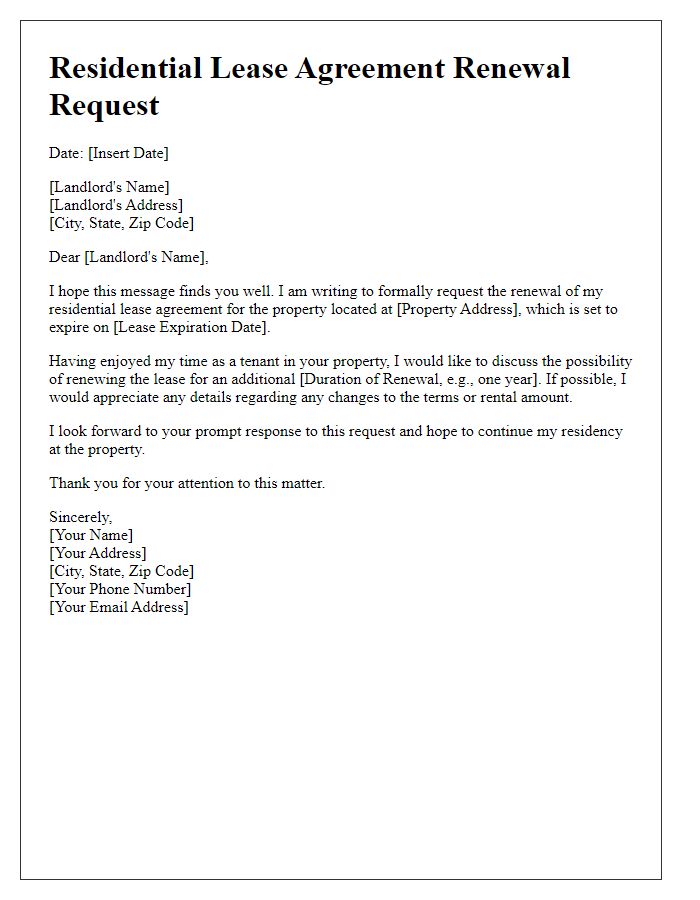
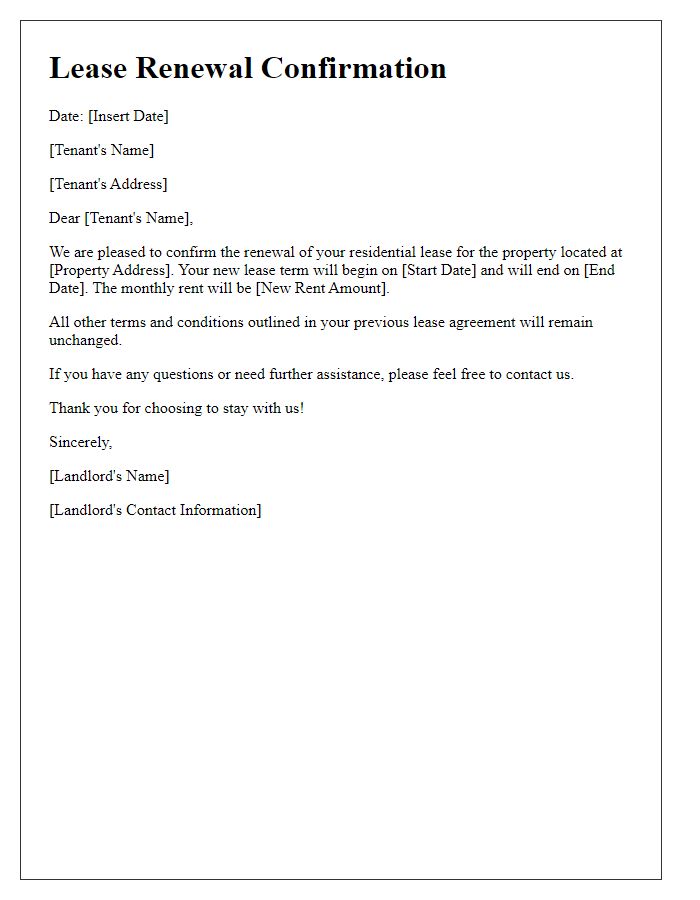
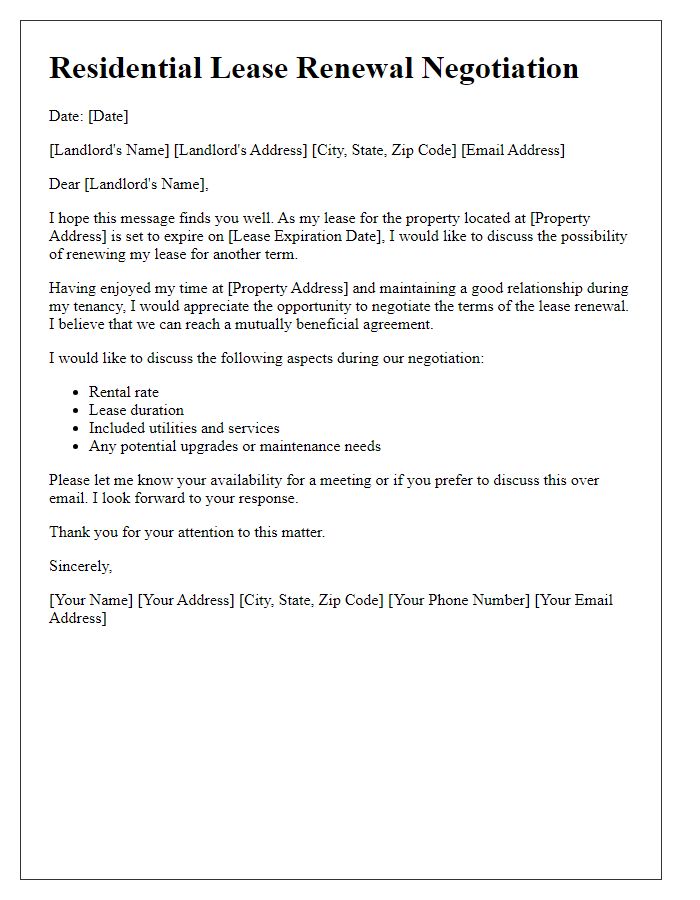
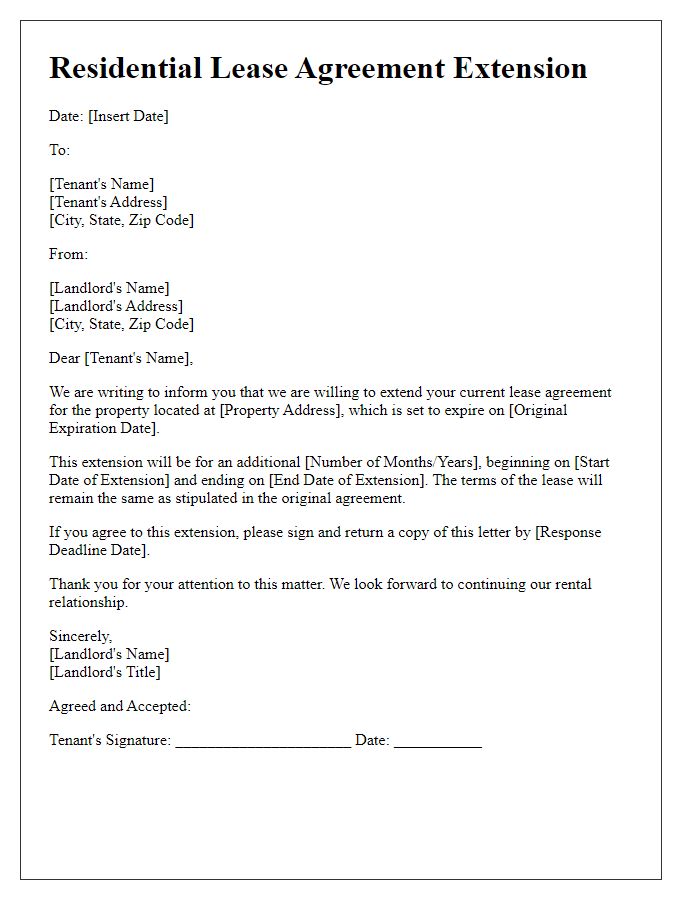
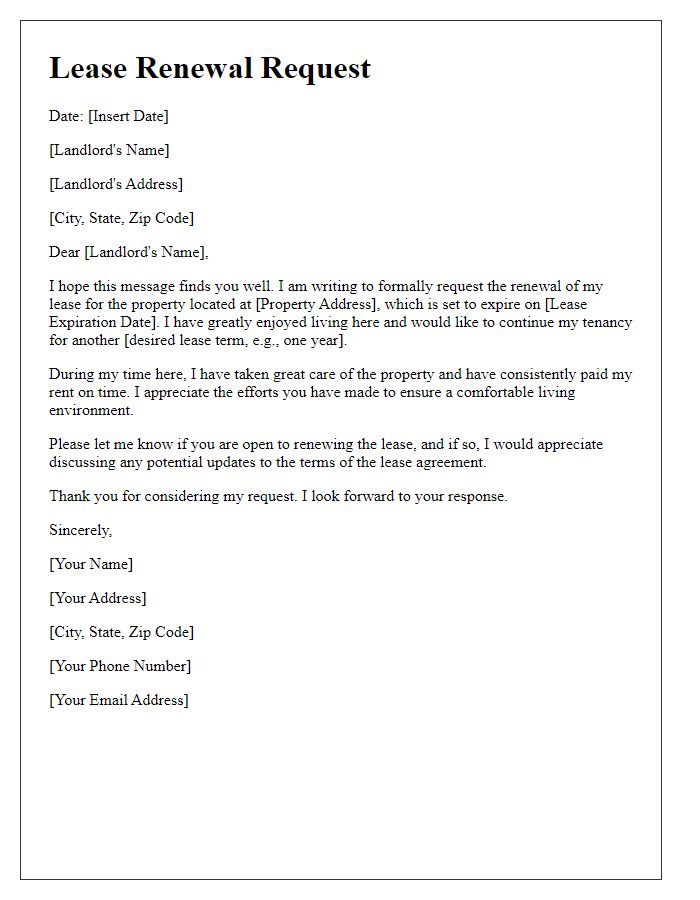
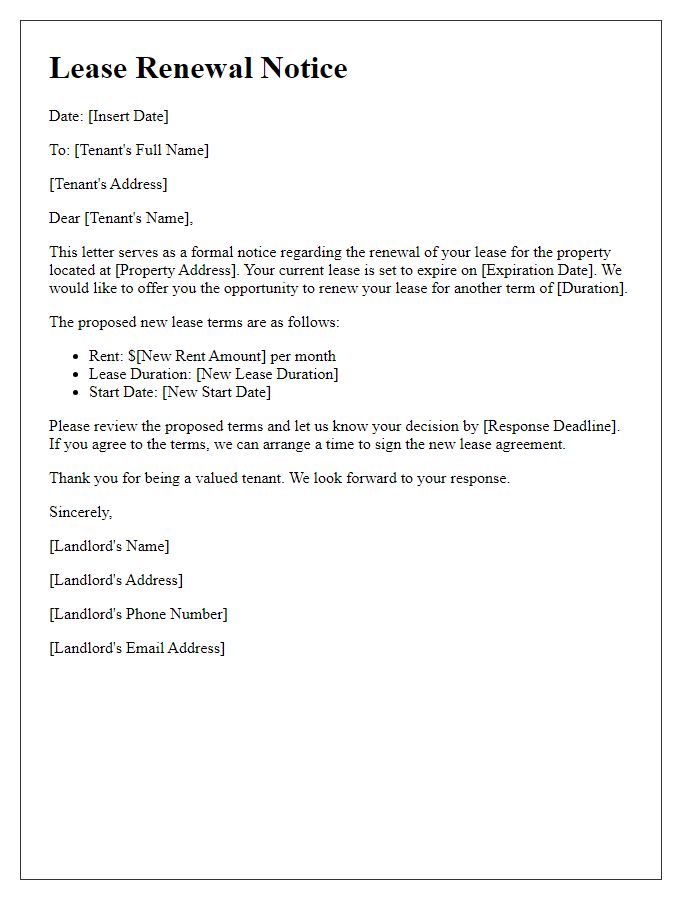
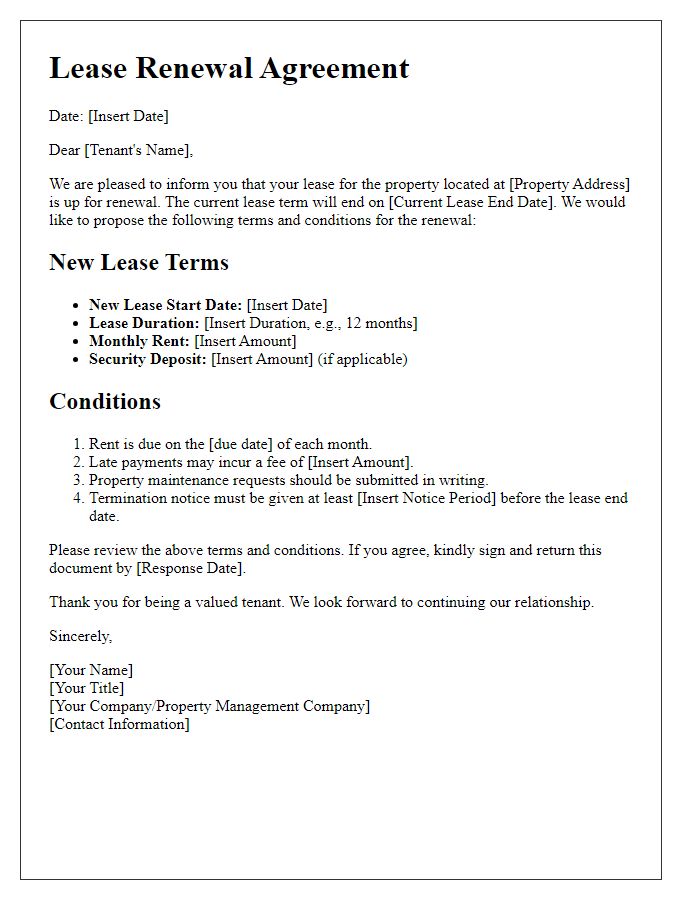
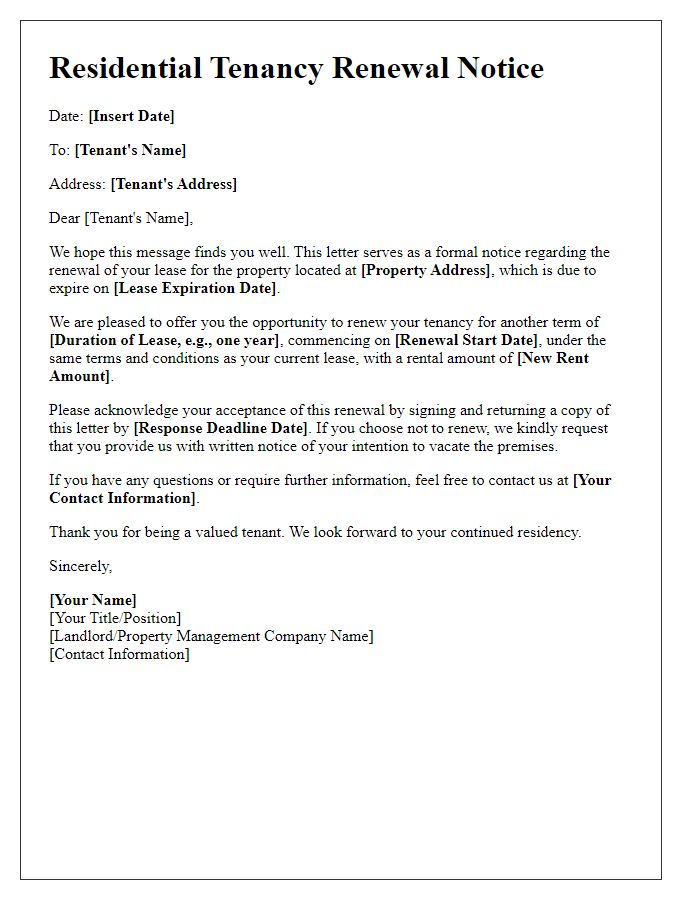
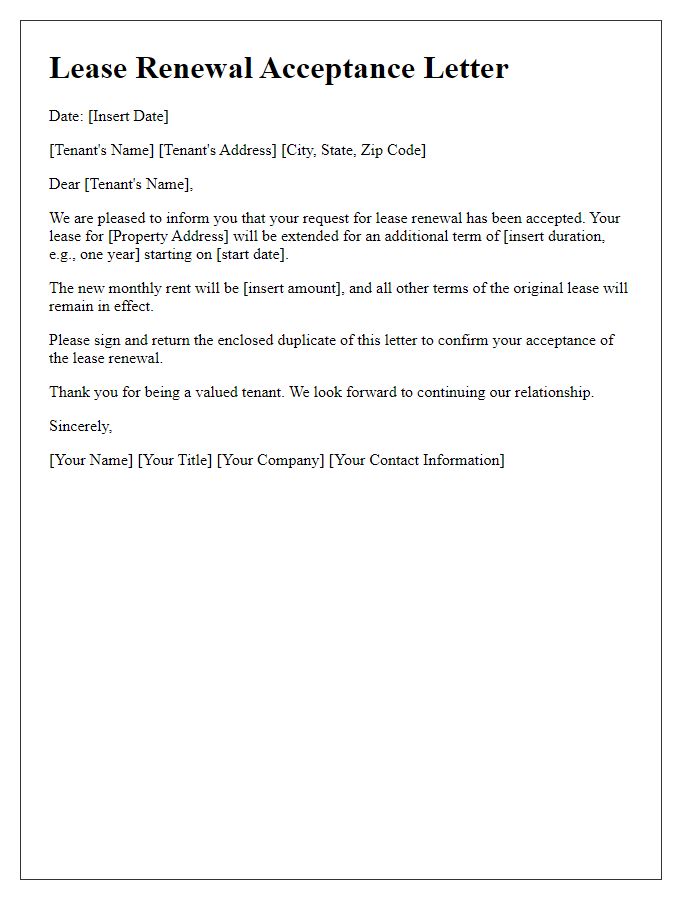
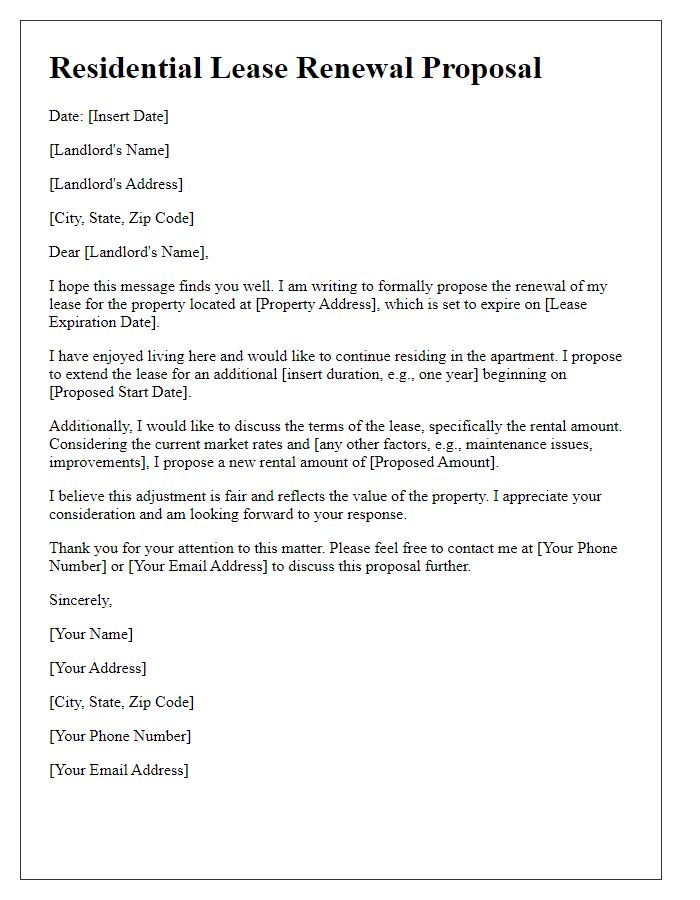


Comments